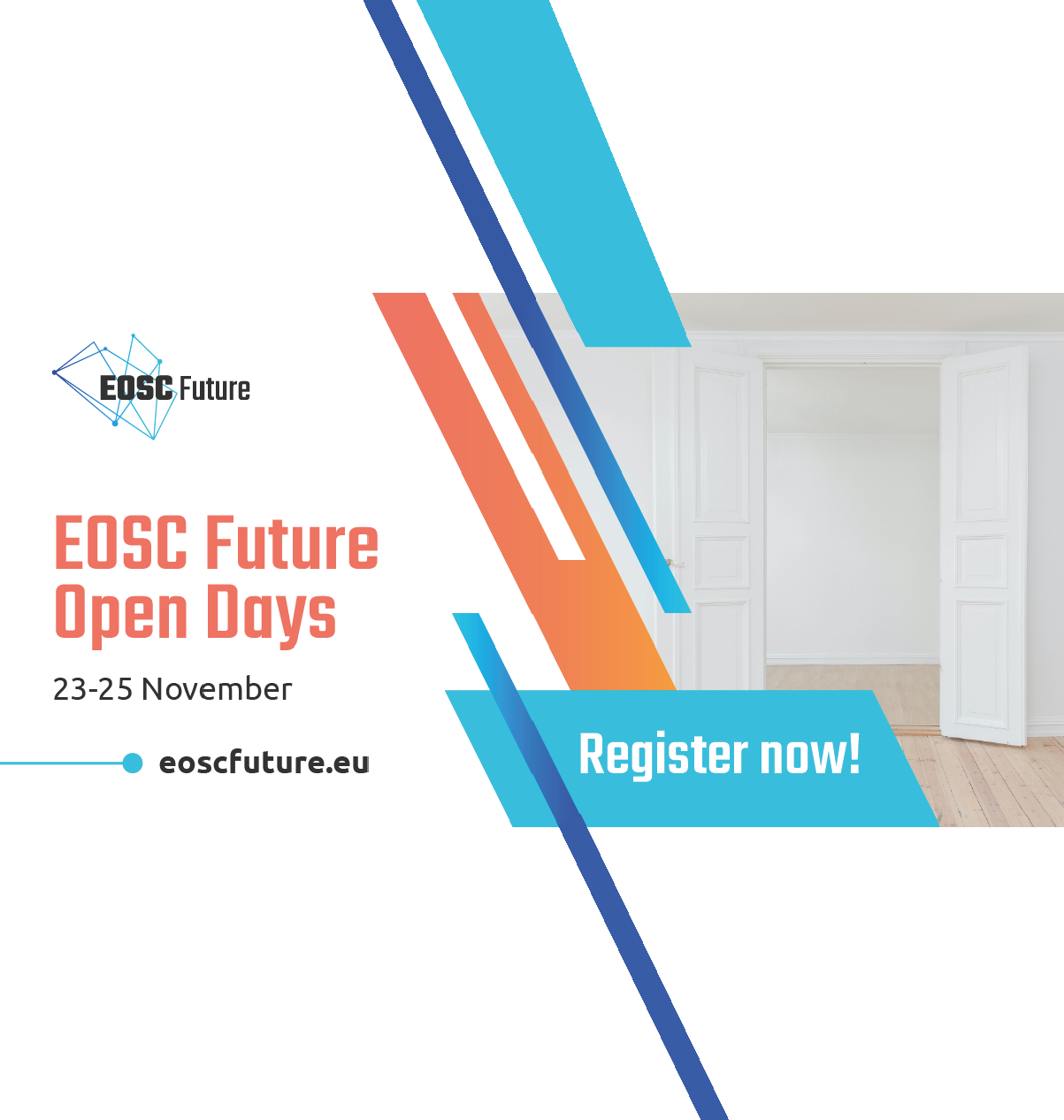EOSC Future Open Days
Home | Events | Researchers | EOSC Future Open Days

Online, 23–25 November 2021. The EOSC Future project is hosting its first series of open days on 23-25 November. During this virtual event, participants will have the opportunity to ask about the inner workings of the project, recent developments and priorities going forward.
The EOSC Future Open Days will bring together various stakeholders active in the EOSC community to discuss topics that are high on the agenda for EOSC Future, not to mention EOSC in general. These topics include:
- the EOSC Portal
- how EOSC Future supports scientific communities
- EOSC Future engagement opportunities
- the Digital Innovation Hub Business Pilots
- the EOSC Observatory
- the EOSC Future Working Groups
- the EOSC Future Knowledge Hub.
The event agenda is built around thematic sessions, so participants can choose the sessions that are most relevant to them. The goal of these sessions is not only to be informative but also to guage the interest and potential contribution of the EOSC community. Interactive Q&A sessions will elaborate on these thematic topics and session discussions.
Agenda
Tuesday, 23 November
09.00-10.00 CET: The EOSC Portal – for researchers
This session will answer the following questions: How does the EOSC Portal work from a user perspective? What novelties can be expected within EOSC Future?
10.30-11.30 CET: Building an EOSC to support leading-edge research
This session will answer the question: How will science benefit from EOSC?
12.00-13.00 CET: Help create an EOSC that works
This session will discuss engagement opportunities within EOSC Future. During the session, the new EOSC branding competition will also be launched.
Wednesday, 24 November
09.00-10.00 CET: The EOSC Portal – for providers
This session will respond to a series of questions: How does the EOSC Portal work from a service provider perspective? What novelties can be expected within EOSC Future?
10.30-11.30 CET: EOSC Future DIH Business Pilots
This session will answer the questions: What is the EOSC Future Digital Innovation Hub and what are the plans for the business pilots?
12.00-13.00 CET: The EOSC Observatory
This session will answer the question: How will EOSC Future support the EOSC Partnership in monitoring EOSC readiness?
Thursday, 25 November
09.00-10.00 CET: EOSC Future Working Groups
This session will answer a series of prompts: What are the EOSC Future Working Groups doing? In which thematic areas? How is this work different from that of the EOSC Association Task Forces (and how will they collaborate)?
10.30-11.30 CET: The EOSC Future Knowledge Hub
This session will answer the following questions: What is the EOSC Future Knowledge Hub? What are the training plans for EOSC Future?